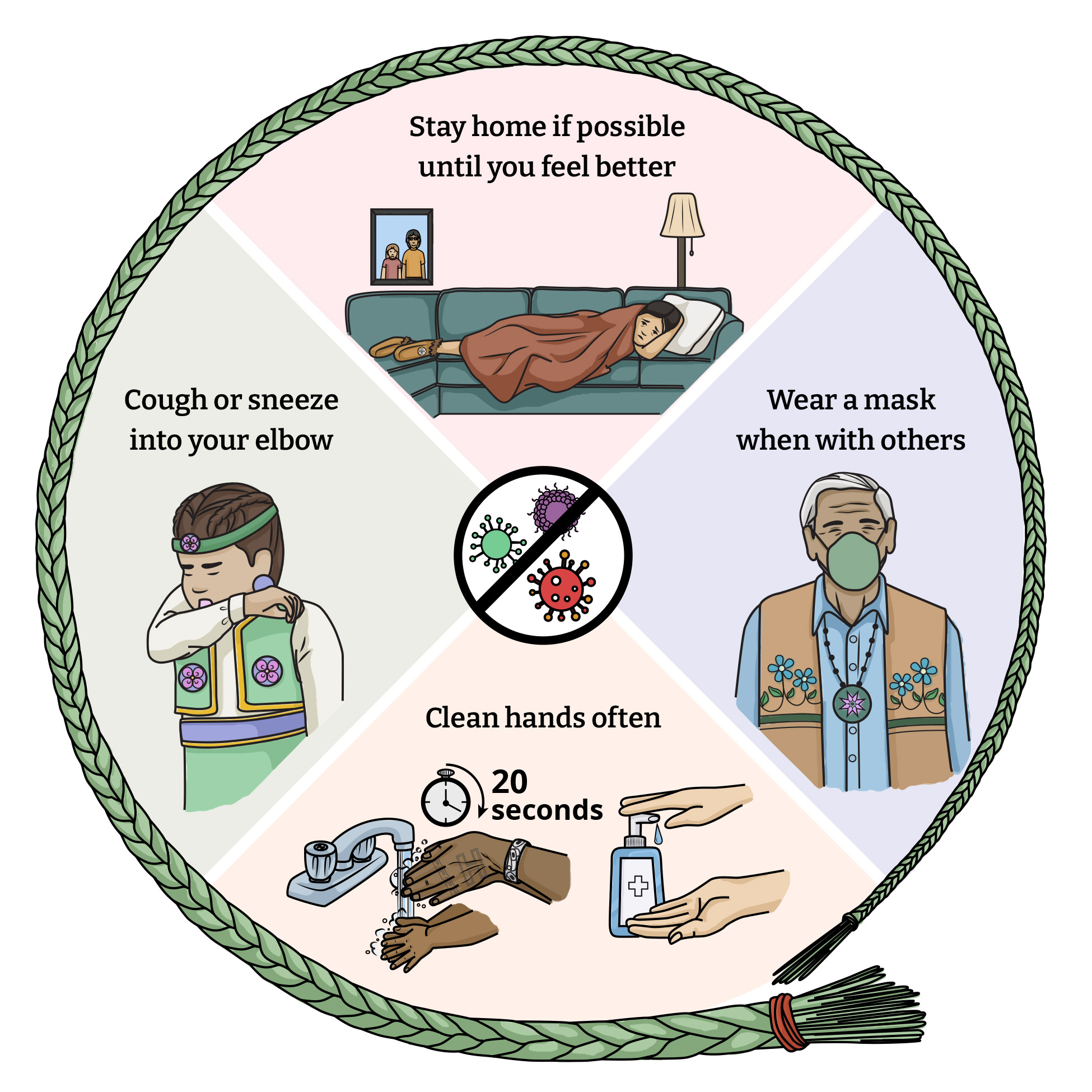Strengthen yourself and your community through a wholistic approach

A message from the FNHA's Office of the Chief Medical Officer (OCMO) and Office of the Chief Nursing Officer (OCNO)
As the weather gets colder, people tend to gather indoors and may become less active, making it easier for respiratory viruses like influenza (flu), COVID-19, and Respiratory Syncytial Virus (RSV) to spread. Fortunately, there are many simple actions we can take to protect our health—and the health of our families and communities. Preventive measures are especially important because young children, as well as people who are frail and elderly, or living with chronic health conditions, are more likely to become seriously ill.
Each year around this time, we share guidance on staying well with a wholistic wellness approach—one that considers the whole person and the physical, mental, emotional, social, and spiritual aspects of health.
Here are some ways you can keep your body, mind, and spirit strong while protecting yourself and others during respiratory season:
- Eat traditional foods such as berries, fish, and foods from the land.
- Participate in cultural activities like drumming, dancing, or beading to support well-being.
- Move regularly. Movement is medicine. Find a physical activity you like and “just do it!"
- Stay connected with loved ones and nature—check in on each other and spend time on the land.
- Keep up with your vaccines by getting your flu and COVID-19 shots as well as other routine vaccines, e.g., measles and pneumococcal (prevents diseases like pneumonia, meningitis and sepsis). Vaccines help strengthen your body's ability to fight germs. If you are unsure about when or where to get vaccinated, ask your health care provider, local health centre, community clinic or pharmacist.
- Wash your hands often, especially after you cough, sneeze, or touch shared surfaces. Model good hygiene for our children and young ones. Avoid touching your eyes, mouth, and nose with unwashed hands—these are common entry points for germs.
- Sneeze or cough into your elbow, not your hands, and turn away from others when you do. Discard used tissues right away.
- Clean and disinfect frequently touched surfaces, e.g., phones, counters, door handles.Stay home and away from others if you're unwell to avoid passing illness to your family or other community members. (Note that in BC, sick notes for short-term illnesses – fewer than seven days – are no longer required by employers.)
- Wear a well-fitted, high-quality mask when you need to be around others, e.g., during medical apppointments.
If you do become sick with a respiratory illness:
- Get plenty of rest.
- Drink a lot of water to keep hydrated and reduce fever.
- Consider acetaminophen (Tylenol) or ibuprofen (Advil) for fever or pain.
- Call 811 to speak to a nurse for non-emergency advice.
- First Nations people without a primary care provider can contact the First Nations Virtual Doctor of the Day.
Contact your health care provider if your symptoms worsen, e.g., you are having difficulty breathing, chest pain, or high fever, or are feeling very weak. This is especially important for those at a higher risk, such as young children and people who are frail and elderly, or living with weakened immune systems or chronic health conditions.
If you don't have a regular provider, contact FNHA Virtual Doctor of the Day at 1-855-943-3354 (toll free), seven days a week from 8:30 a.m. to 4:30 p.m.
If you are attending a clinic in person and have a fever or cough, please call ahead so staff can take measures to protect others.
This season, let's continue to walk gently with one another, taking actions to protect our collective wellness guided by kindness, knowledge, and the strength of our communities.

